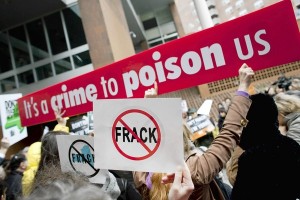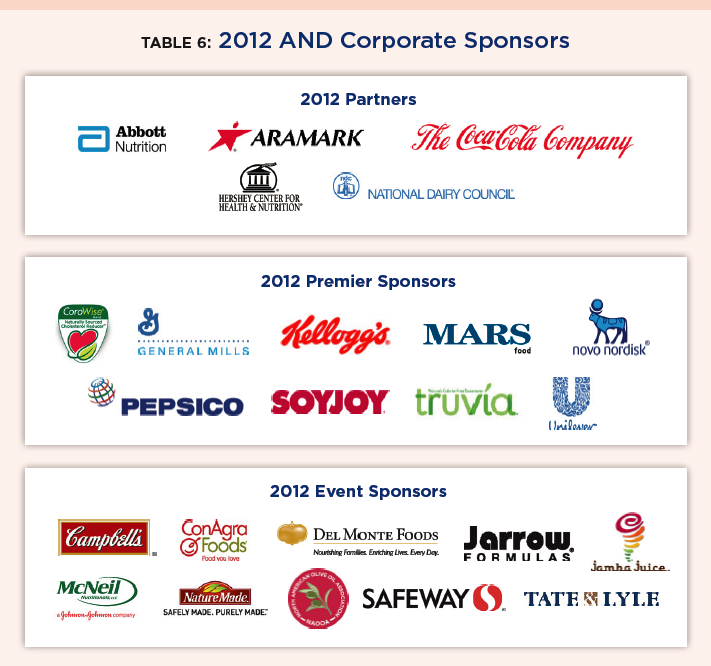Cancer-Causing Chemicals Used in 34 Percent of Reported Fracking Operations
 One out of every three hydraulic fracturing operations across the nation, are now being recognized as carcinogens by an independent analysis of the SkyTruth Fracking Chemical Database, by IT professional, David Darling. He found that 9,310 individual fracking operations conducted between January 2011 and September 2012, disclosed the use of at least one known carcinogen. While not all hydraulic fracturing operations or all chemicals used in the process are disclosed by the drilling industry, thanks to the lack of a uniform national disclosure law and exacerbated by the liberal use of “trade secret” exemptions, known cancer-causing substances such as naphthalene, benzyl chloride and formaldehyde, were used in 34 percent of all fracks reported by industry to FracFocus.org. When Darling expanded the search to include suspected carcinogens, he found 24,861 fracks (or 90 percent of all reports) listed using at least one suspected carcinogen in the fracking process. This is disturbing information, especially since it not openly disclosed to the public.
One out of every three hydraulic fracturing operations across the nation, are now being recognized as carcinogens by an independent analysis of the SkyTruth Fracking Chemical Database, by IT professional, David Darling. He found that 9,310 individual fracking operations conducted between January 2011 and September 2012, disclosed the use of at least one known carcinogen. While not all hydraulic fracturing operations or all chemicals used in the process are disclosed by the drilling industry, thanks to the lack of a uniform national disclosure law and exacerbated by the liberal use of “trade secret” exemptions, known cancer-causing substances such as naphthalene, benzyl chloride and formaldehyde, were used in 34 percent of all fracks reported by industry to FracFocus.org. When Darling expanded the search to include suspected carcinogens, he found 24,861 fracks (or 90 percent of all reports) listed using at least one suspected carcinogen in the fracking process. This is disturbing information, especially since it not openly disclosed to the public.
Nebraska Governor Approves Keystone Pipeline
Nebraska Gov. Dave Heineman, notified President Obama on Tuesday that he has approved the controversial Keystone XL Pipeline to cut across his state, a crucial step towards bringing life back to the project, one year after it was delayed by the Obama administration. The Republican governor wrote in a letter to  Obama and Secretary of State Hillary Rodham Clinton, that he has approved a revised route for the Canada-to-Texas pipeline, which his office said would avoid the environmentally sensitive Sandhills region, but will cut through the High Plains Aquifer. The move puts pressure on the Obama administration to decide the fate of the 1,700-mile pipeline. “The latest pipeline review still ignores the biggest impact of Keystone XL: climate change,” said May Boeve, the executive director of 350.org, an environmental advocacy group. “The tar sands oil that would flow through Keystone XL is the dirtiest form of fuel on the planet, and burning it would have a devastating effect on our climate.”
Obama and Secretary of State Hillary Rodham Clinton, that he has approved a revised route for the Canada-to-Texas pipeline, which his office said would avoid the environmentally sensitive Sandhills region, but will cut through the High Plains Aquifer. The move puts pressure on the Obama administration to decide the fate of the 1,700-mile pipeline. “The latest pipeline review still ignores the biggest impact of Keystone XL: climate change,” said May Boeve, the executive director of 350.org, an environmental advocacy group. “The tar sands oil that would flow through Keystone XL is the dirtiest form of fuel on the planet, and burning it would have a devastating effect on our climate.”
New Study: Big Food’s ties to Registered Dietitians
Michele Simon, president of Eat, Drink, Politics, an industry watchdog consulting group, has just published an article on the close financial relationships between food and beverage companies and the Academy of Nutrition and Dietetics (AND, formerly the American Dietetic Association), a trade group presenting some 74,000 dietitians. Her hard-hitting report, And Now a Word from Our Sponsors: Are America’s Nutrition Professionals in the Pocket of Big Food?, provides ample evidence that partnerships and alliances with Big Food make it impossible for AND members to convey clear and accurate messages about nutrition and health. And here are a small selection of her observations and conclusions:
- AND collected $1.85 million in sponsorship funds in 2011, a relatively small percentage of its $34 million income.
- Companies such as Coca-Cola, Kraft, Nestlé, and PepsiCo offer approved continuing education courses to AND members.
- Two of the messages conveyed by one of Coca-Cola’s courses: sugar is not harmful to children, and federal nutrition standards for school meals are too restrictive.
- More than 20% of speakers at AND’s annual meeting have financial ties to Big Food companies, although most were not disclosed.
- A survey found 80% of members to believe that sponsorship implies an AND endorsement of the sponsor’s products.
- A majority of AND members believe that three current sponsors are unacceptable: Coca-Cola, Mars, and PepsiCo.
If you want to see how sponsorship plays out in practice, take a look at her photographs of the exhibit hall at the 2012 AND annual meeting. She also provides photos taken elsewhere at the meeting. And here’s the New York Times’ take on it.

Comments are closed.